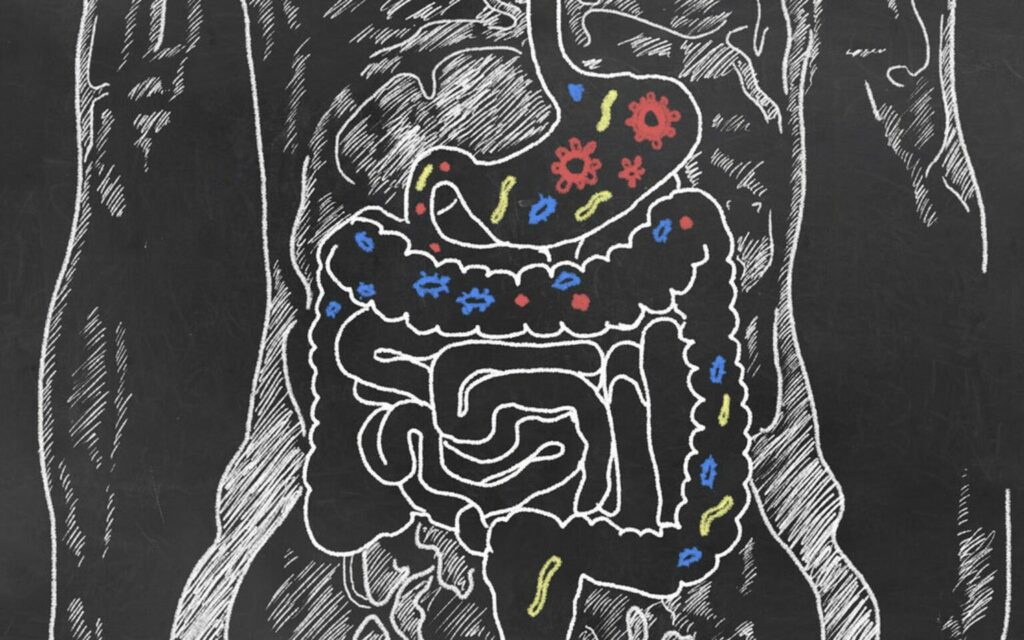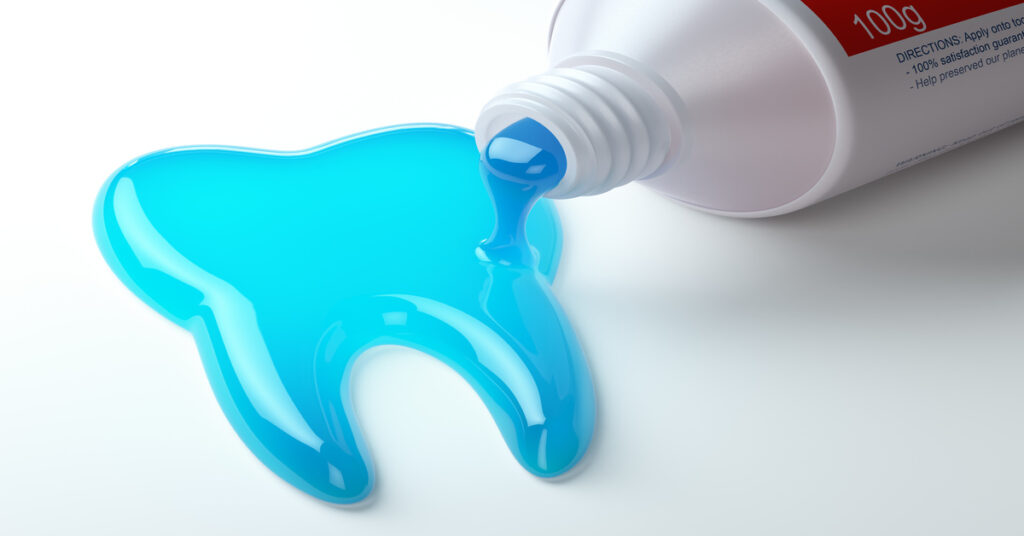ZINC
Zinc is a mineral that plays a vital role in several physiological processes in the human body. It is involved in the function of over 300 enzymes, including those responsible for DNA synthesis, protein synthesis, and immune system function. Zinc is also an important component of antioxidant enzymes, which protect cells from oxidative damage caused by free radicals. In addition, zinc has been linked to several other health benefits, including improved brain function, increased testosterone levels, and enhanced immune system function.
Despite its importance, many people do not get enough zinc in their diets, and zinc deficiency is a common problem worldwide. This is particularly true for people who follow vegetarian or vegan diets, as zinc is predominantly found in animal-based foods. Zinc supplementation has become increasingly popular as a way to ensure adequate zinc intake and potentially reap its numerous benefits.
In this article, we will explore the science behind zinc supplementation and its many roles in the body. We will examine the evidence supporting zinc’s ability to improve antioxidant function, brain function, testosterone levels, and immune system function.
Table of Contents
- Source & Origin
- Biological Significance
- Intake & Requirements
- Zinc Status & Deficiency
- Formulations & Variants
- Absorption
- Neurological Distribution
- Serotonergic Neurotransmission
- Neurogenesis
- Neurooxidation
- Addiction & Obsession
- Appetite & Food Intake
- Attention & Focus
- Depression
- Memory & Learning
- Cardiovascular Health & Atherosclerosis
- Lipoproteins & Triglycerides
- Glycogen
- Insulin
- Diabetes
- T-Cells
- Rhinovirus & URTIs
- Pneumonia
- Virology
- Interactions with Testosterone
- Dehydrotestosterone (DHT)
- Estrogen
- Insulin-Like Growth Factors
- Leptin
- Interactions with Organ Systems
- Interactions with the Skin
- PMS & Menopause
- Alzheimer’s
- Celiac Disease
- Pruritus
- Vitamin B6
- Alcohol
- Iron
- Safety & Toxicology
- Summary
Source & Origin
Zinc is an essential mineral found in high levels in animal tissues and eggs, legumes, and fish. It is exceptionally high in shellfish such as oyster. [1]
Zinc is most commonly touted to be important as it is a cofacter in over 300 enzymes involved in gene expression, cell proliferation and signal transduction [1, 2] and deficiencies of zinc may reduce the activity of these enzymes.
Biological Significance
Zinc plays a crucial role in the human body. One of its main functions is acting as a prosthetic group for various enzymes called metalloproteins. [1] One of the most important metalloproteins that zinc is involved in is Superoxide Dismutase enzyme, an endogenous anti-oxidant involving both zinc and copper. Zinc is also involved in regulating the immune system. [1]
Intake & Requirements
The RDA values for zinc are an Estimated Average Requirement (EAR) of 6.5mg for females, 8.5-10mg for pregnant or lactating females, and 12mg a day for men. The Recommended Daily Intake (RDI) values are 8mg for females, 10-12mg for pregnant or lactating females, and 14-15mg for males, and the Tolerable Upper intake Limit (TUL) is in the range of 35-40mg for adults of both genders (all numbers daily requirements).
Zinc Status & Deficiency
A deficiency in zinc is related to delayed growth in youth and hypogonadism in adult males as well as general mental lethargy and skin abnormalities.
It has been noted that around 10% of persons in the US have a dietary intake of less than half the RDA of zinc [1] while global deficiency rates are over 50% (due to high deficiency rates in third world countries). A major factor contributing to 1.4% deaths worldwide has been associated with severe zinc deficiency in childhood although this magnitude of deficiency is almost never observed in first-world countries.
Zinc is lost during sweat and exercise[1] and may be a contributing factor to why testosterone levels seem to be depressed after exhaustive exercise. [1]
In diabetic individuals (following information seems to apply equally to type I and type II diabetics), urinary zinc excretion rates are increased [1, 2] and although serum zinc concentrations are unreliably influenced (increased [1], decreased [1, 2], or not different from non-diabetic controls) cellular concentrations of zinc as measured in immune cells (mononuclear cells, granulocytes, lymphocytes and leucocytes) tend to be reduced relative to nondiabetic controls. [1, 2]
Main Takeaway: Zinc deficiency is mostly associated with cognitive deficits (memory and mood) as well as growth impairments in youth. Excessive sweating over a prolonged period of time (seen in athletes) may predispose athletes to zinc deficiencies. Diabetics (both type I and type II) appear to be at higher risk for zinc deficiencies than do non-diabetic persons.
Formulations & Variants
Zinc Citrate, at 50mg elemental Zinc (146mg) daily for 4 weeks is associated witha maintenance of Zinc status while placebo declines over time (told to maintain a low Zinc diet, estimated between 10-12mg).
Zinc Gluconate, at 50mg elemental Zinc (385mg), appears to be slightly more effective than Zinc Citrate (nonsignificant) and can increase serum and erythrocytic stores of Zinc in apparently healthy persons over a period of 4 weeks.
Zinc Picolinate (bound to picolinic acid, a metabolite of tryptophan), at 50mg elemental Zinc (144mg) in healthy persons appears to increase urinary and serum levels greater than placebo and the other two forms tested (Citrate, Gluconate).
Zinc carnosine (ZnC) is a synthetic compound that consists of zinc and carnosine bound together in a 1:1 ratio to form a polymer structure. This synthetic molecule has been used in Japan for the treatment of gastritis and gastric ulcers for a while now. Research suggests that ZnC is much more effective at promoting gastric integrity than either zinc or carnosine alone, with some studies indicating that it can be up to three times as effective. While ZnC is known to protect against increases in intestinal permeability, the mechanisms at work are not entirely clear. ZnC increased cell migration by approximately 100% compared to the vehicle control, suggesting that it may promote gastric healing in part by increasing epithelial cell migration in injured regions of the GI tract. ZnC also induced a dose-dependent increase on cell proliferation, with a maximal response at 100μM.
Main Takeaway: Studies have shown that ZnC has the potential to increase the migration and proliferation of colonic epithelial cells in vitro. This indicates that the compound could aid in promoting gastric healing by interacting with the epithelial cells found in the gastrointestinal (GI) tract. ZnC has demonstrated significant protective effects in animal models of NSAID- induced GI injury. ZnC has also been shown to prevent increased intestinal permeability from NSAID-induced injury in humans. Evidence for this effect is strong, having been demonstrated in a randomized, double blinded and placebo controlled trial with a crossover design. The effective dose of ZnC in this study (37.5 mg twice/day) is easily achievable with over the counter supplements.
Absorption
Zinc levels in the body are primarily regulated by absorption and fecal excretion in the intestines, as evidenced by research studies. [1] When zinc deficiency occurs, the intestinal absorption of zinc can reach almost 100%.
In humans, the same phenomenon has been observed, where zinc absorption is increased during states of deficiency and decreased when sufficient levels are present. [1, 2]
One study conducted on animals has suggested that there may be a dysregulation in intestinal zinc absorption during the aging process. This could result in poorer absorption of zinc, making adequate dietary intake metabolically insufficient.
Absorption of zinc tends to be regulated, with higher oral intakes being associated with lower bioavailability and approximately 5mg absorbed in postmenopausal women regardless of dietary or supplemental intake.
Neurological Distribution
Zinc, as a trace mineral, is present in the cerebral cortex, pineal gland, and hippocampus where it acts as an atypical neuromodulator. [1, 2] In the hippocampus, particularly the vesicles of mossy fibers, zinc can reach concentrations of 220-300μM which is around 8% of total brain zinc (concentrations of free zinc are more modest at 1-20μM [1]) and is sensitive to prolonged (but not acute) zinc deficiency, while in the pineal gland it may regulate the response of this organ to leptin.
Zinc, similarly to most neuromodulators, is released from the synapse upon action potentials.
Main Takeaway: Zinc is naturally occurring in the brain and acts as a neuromodulator. It is particularly concentrated in the hippocampus and pineal gland and is released during neuronal activity.
Serotonergic Neurotransmission
Zinc has been implicated in the regulation of serotonin uptake in specific areas of the brain. Research suggests that high concentrations of zinc are required for this effect, which may be physiologically relevant. Some antidepressant medications may reduce serotonin uptake in these brain regions if zinc levels are low.
Neurogenesis
Brain-derived neurotrophic factor (BDNF) is a protein found in both serum and brain (serum concentrations thought to be reflective of brain concentrations) which is involved in regulating neuronal growth and plasticity BDNF signalling is implicated in both depression and memory function. Zinc has been noted to increase serum BDNF levels, with the magnitude of increase correlating highly with increases in serum zinc. [1, 2, 3, 4, 5, 6]
Neurooxidation
While zinc is important in the brain, excessive concentrations of zinc can cause excitotoxicity, This is sometimes seen in ischemic injury where an excess amount of zinc is released from the synapse and mediates cell death [1] and infarctions. This is why zinc chelators are therapeutic in instances of stroke rehabilitation.
Main Takeaway: It should be noted that high levels of zinc, usually not achieved through supplementation unless taken in abnormally high doses, can potentially play a role in cell death during hypoxia or ischemia.
Addiction & Obsession
The addition of zinc (220mg twice daily) to fluoxetine therapy (20mg) for obsessive compulsive disorder is able to reduce symptoms of OCD as assessed by the Y-BOCS rating scale.
Appetite & Food Intake
A deficiency of zinc is known to be a cause of anorexia (a reduction of appetite, not the same thing as anorexia nervosa), and is usually the first symptom of a zinc deficiency and is shortly followed by depressive symptoms and anhedonia.
Zinc also appears to positively influence appetite in rats who are not zinc deficient, [1, 2] and this may be related to activating a receptor (GPR39) that is involved in ghrelin signalling. [1, 2]
Main Takeaway: Zinc deficiencies are known to reduce appetite, and this is usually the first symptom of a zinc deficiency
Attention & Focus
Depression
Serum zinc concentrations and zinc status are negatively correlated with the risk of developing depression, and in persons who are depressed zinc status is further negatively correlated with the severity of depression. [1, 2, 3]
In rats, the depressive and behavioural symptoms (increased susceptability to stress) that are seen with two weeks of zinc deprivation are normalized upon supplemetnation of zinc. Interestingly, deprivation of zinc causes rats to be resistant to fluoxetine (SSRI) therapy.
Supplementation of zinc at 25mg (elemental) or higher has preliminary evidence for working in humans either as adjuvant therapy with SSRIs or inherently. [1]
Zinc is an endogenous inhibitor of glycogen synthase kinase-3β, which is involved in mood disorders and depression.
This is thought to be the molecular target for zinc and its interactions with mood and depression. [1, 2]
Zinc appears to be notably effective in treatment resistant depression alongside other pharmaceuticals, although it does not seem to inherently have an effect in healthy elderly persons.
In persons given imipramine but were resistant to treatment, supplementation of 25mg elemental zinc for twelve weeks is able to reduce depressive symptoms relative to placebo to the levels seen with non-resistant persons as assessed by BDI, HAMD, and CGI.
Memory & Learning
Zinc deficiency is associated with impaired memory formation and impaired signalling of the BDNF growth factor, and improving zinc status is associated with betterment on both accounts. An abnormally high zinc intake is also associated with memory impairment, and oddly it is associated with a reduction rather than surplus of zinc in the brain.
There is mixed evidence for whether zinc higher than the standard dietary intake is beneficial or negative for spatial memory formation, [1, 2, 3] although at least one study noted that low dose copper exerted a protective effect against zinc (in a study where zinc had a negative effect).
In people who suffered from stroke and have inadequate dietary intake, cognitive improvements following stroke appear to be accelerated relative to placebo.
Cardiovascular Health & Atherosclerosis
Zinc is thought to be an anti-atherogenic agent and in particular a zinc deficiency is thought to be a risk factor for atherogenesis with supplementation alleviating this risk. Dietary zinc intake is known to be inversely associated with atherosclerotic buildup in arteries.
Supplementation with 45mg of elemental zinc daily in the form of gluconate for six months in elderly individuals (higher risk for zinc deficiency) has been shown to have potential anti-inflammatory effects. Specifically, this regimen was associated with reduced levels of cell adhesion factors such as ICAM-1 and vCAM-1, as well as lower levels of inflammatory cytokines including C-reactive protein, IL-6, and MCP-1.
Main Takeaway: Normalizing a zinc deficiency appears to be assosiated with a reduced risk for arterial plaque buildup (atherosclerosis).
Lipoproteins & Triglycerides
Supplementation of 20mg elemental zinc in obese insulin resistant children over eight weeks is associated with a reduction in total cholesterol and LDL-C.
Oxidized LDL-C appears to be reduced when insulin resistant children are given 20mg elemental zinc for eight weeks, possibly secondary to reducing the state of insulin resistance.
Glycogen
Due to inhibiting GSK-3β, zinc can increase the activity of glycogen synthesis.
Insulin
Diabetes
In diabetic individuals (both type I and type II diabetics), urinary zinc excretion rates are increased [1, 2] and although serum zinc concentrations are unreliably influenced (increased [1], decreased [1, 2] or not different from non-diabetic controls) cellular concentrations of zinc as measured in immune cells (mononuclear cells, granulocytes, lymphocytes and leucocytes) tend to be reduced relative to nondiabetic controls. [1, 2]
Three weeks of supplementation with 30mg elemental zinc (glycine chelation) appears to be sufficient to at least partially restore a zinc deficiency in diabetics.
Supplementing obese insulin resistant children, who were likely deficient in zinc, with 20mg elemental zinc for eight weeks resulted in improvements in all biomarkers of glucose metabolism. These improvements included a 7% reduction in blood glucose, a 23% reduction in fasting insulin, and a 31% improvement in insulin sensitivity as assessed by HOMA-IR. Similar findings have been reported in other studies.
Supplementation with high doses of zinc (240mg elemental zinc as gluconate) for three months has been found to be ineffective in improving clinical outcomes in diabetics who already have sufficient zinc levels.
Main Takeaway: While plasma measurements of zinc may not be completely reliable, studies suggest that individuals with both type I and type II diabetes are more likely to experience zinc deficiency which can be remedied fairly rapidly with zinc supplementation. Adequate zinc levels are important for glucose metabolism in individuals with diabetes or insulin resistance. Zinc supplementation can improve glucose levels, insulin levels, and insulin sensitivity in those who are deficient in zinc. However, in individuals who are already sufficient in zinc, further supplementation may not provide any additional benefits.
T-Cells
Zinc deficiency is known to lead to a reduced count of T-cells and subsequently depressed humoral and cell-mediated immunity.
Taking a high dose of zinc sulfate (300 mg/day) for six weeks can lead to impaired lymphocyte stimulation by T-cells in response to phytohemagglutinin, as well as reduced chemotaxis and phagocytosis from polymorphonuclear leukocytes. These effects suggest a greater susceptibility to infection. It is important to note that this dose is much higher than the normal supplemental intake and recommended dietary allowance (RDA) for zinc.
Rhinovirus & URTIs
Rhinovirus is known as the common cold, and URTI is the acronym for ‘Upper respitatory tract infection’. Administering high doses of zinc at the onset of the common cold (rather than as a preventive measure) has shown to be effective in reducing the severity and duration of the illness.
Supplementation of zinc daily as a preventative appears to reduce the rate of getting colds. [1]
Pneumonia
When used alone (monotherapy) to treat pneumonia, zinc typically does not seem to be more effective than a placebo, according to research studies.
When zinc is used as an adjuvant with another drug for pneumonia treatment, it is generally found to be ineffective compared to the placebo group receiving the drug alone. [1, 2, 3, 4, 5]
The usage of zinc as a preventative for two weeks (10-20mg elemental zinc daily) was unable to influence the occurrence of pneumonia in children measured over the following six months.
Virology
Zinc appears to be more likely to be deficient in persons with HIV at up to 50%. [1, 2] Those who are deficient seem to have faster disease progression [1] and mortality.
It is recommended to low-ball zinc supplementation at 10-15mg elemental zinc as higher doses exceeding the tolerable upper limit (TUL) might also be adverse.
Interactions with Testosterone
Bodily zinc stores are positively associated with serum testosterone [1] while increased urinary excretion of zinc is negatively associated with serum testosterone levels. Magnesium also shares a negative association with urinary zinc excretion.
When there is a deficiency of zinc, it can impair the conversion of cholesterol and lipid precursors into sex hormones, despite unaffected testicular cell uptake. Additionally, other side-effects related to zinc deficiency are a reduction in the overall population of androgen receptors and in male sex organs.
This could be due to the fact that androgen receptors have a zinc binding site and their proper functioning is compromised without sufficient zinc.
Some animal research suggests that high doses of zinc (or moderate doses of injections) can increase circulating testosterone concentrations. [1]
In human instances of zinc deficiency, relatively modest supplemental dosages appear to be able to increase circulating testosterone concentrations. [1] Men with adequate zinc levels may experience preservation of zinc concentrations when engaging in strenuous exercise, but there is no evidence that zinc has any effect on testosterone levels in the absence of exercise. [1, 2]
Main Takeaway: Insufficient zinc levels can result in lower expression of androgen receptors and decreased testosterone synthesis in cells, leading to a reduction in the overall impact of testosterone.
Dehydrotestosterone (DHT)
Zinc has been shown to inhibit 5α-reductase in vitro [1], but its relevance in oral supplementation is uncertain. Low concentrations of zinc may increase enzyme activity, while higher concentrations may inhibit it. It is unclear whether these high concentrations can be achieved through oral supplementation.
In men with infertility, a rise in DHT levels is observed, indicating that the decreased zinc concentration (which enhances the activity of the 5α-reductase enzyme) is more significant.
Estrogen
A zinc deficiency in rats is associated with an increased expression of estrogen receptors (57%).
Insulin-Like Growth Factors
IGF-1 [1] and IGFBP3 are reduced in persons experiencing a dietary zinc deficiency, which is normalized upon supplementation.
Elderly individuals who were given a daily dose of 30mg zinc supplementation for four weeks showed an increase in IGF-1. The increase was more pronounced when zinc supplementation was combined with a whey protein supplement, with the IGF-1 levels increasing from 22.4+/-4.7% to 48.2+/-14%.
Leptin
Leptin production and secretion can be reduced in individuals who are deficient in zinc. [1, 2]
Zinc and leptin may interact through mediators such as TNF-α and interleukin-2. [1]
If a person is deficient in zinc, supplementing with zinc can increase the levels of leptin in their bloodstream.
Interactions with Organ Systems
Zinc deficiency is associated with impaired taste, and supplementation of zinc is able to enhance taste acuity when it is normalizing a deficiency. [1, 2, 3, 4, 5]
Taste losses (hypogeusia) associated with chemotherapy does not appear to be influenced with oral zinc supplementation, while altered perception of taste (dysgeusia) has mixed evidence.
There is limited evidence to suggest that correcting a zinc deficiency may reduce the risk of plaque formation on teeth.
Zinc chloride appears to be capable of preventing secretagogue-induced acid secretion in rat and human stomach tissue, which although therapeutic for the stomach may limit its own subsequent absorption.
Supplementation of zinc may be slightly therapeutic in instances of liver cirrhosis.
Very high levels of zinc intake (330mg daily) has been implicated in alleviating leaky gut syndrome in those with Crohn’s Disease. It can also prevent or alleviate damage to the intestinal mucosa and some to the liver done by alcohol [1, 2] and due to alcohol causing zinc depletion, can also provide therapeutic-like benefit in treating alcohol-induced damage to the gut and liver. [1] Many of these effects were noted as dose dependent, but were seen at 3-5mg/kg bodyweight (an incredibly high dose).
There is currently limited evidence to support the potential therapeutic role of high dose zinc supplementation for tinnitus. The addition of zinc supplementation to corticosteroids appears to accelerate the recovery of hearing after sudden idiopathic hearing loss.
Insufficient levels of zinc can lead to extensive damage to testicular function, which includes reduced production and release of testosterone, lowered fertility, decreased quality of sperm, and a higher likelihood of cell death. [1, 2, 3, 4, 5, 6, 7, 8]
Supplemental zinc may reduce the damage done by oxidative stressors to the testes in rodents that are not inherently deficient in zinc.
In infertile men, supplementation of zinc can increase sperm count only in men who also have low testosterone concentrations in their blood. This is associated with an increase in fertility, and not observed in men who are infertile with adequate testosterone concentrations.
Interactions with the Skin
Individuals with acne have lower levels of circulating zinc compared to those without acne. [1, 2, 3, 4] Zinc may be therapeutic for acne by decreasing the migration of immune cells to the skin and potentially reducing the effects of androgens on the skin. Studies on the use of zinc for acne control have found that standard to high supplemental doses have a modest protective effect. [1, 2, 3]
Based on some preliminary evidence, 2 months of very high dose zinc supplementation appears to be very effective in reducing viral warts. [1] The benefits may persist for a prolonged period of time after supplementation is ceased, and topical zinc also appears effective at high concentrations. Non-viral warts are not as potently suppressed.
The human evidence in support of zinc as therapy for rosacea is currently small and mixed. While inefficacy of zinc in this role cannot yet be claimed, the evidence does not support usage of zinc for therapy of rosacea. [1, 2]
Limited evidence suggests that topical zinc pyrithione is highly effective for the treatment of psoriasis. [1, 2]
PMS & Menopause
In a two-month study conducted on high school students with primary dysmenorrhea who were not using birth control, the use of zinc sulfate resulted in a significant reduction in pain as measured by a visual analog scale. The reduction in pain was 23% in the first month and 61% in the second month, as compared to a placebo. The participants were given a dose of 220mg zinc sulfate three times a day for four days, starting the day before the menstrual bleeding began.
Alzheimer's
Zinc can affect the fibrillization and phosphorylation of a protein called tau, which is similar to β-amyloid proteins formed in Alzheimer’s disease. High concentrations of zinc (250µM) promote this process, while lower concentrations (100µM) have a protective effect. [1]
Zinc can compete with copper for binding to β-amyloid proteins, and this competition may provide a protective effect. Copper is more likely than zinc to promote oxidative damage from β-amyloid.
In a mouse model for Alzheimer’s disease, the provision of water with an additional 30ppm zinc given throughout the lifespan seemed to have protective effects against the decline in memory compared to the control group. This protective effect was attributed to a decrease in protein pathology, specifically in β-amyloid and tau proteins, along with improvements in mitochondrial function and increased levels of BDNF.
Celiac Disease
A person with celiac disease who consumes gluten may experience intestinal distress and malabsorption due to their gluten intolerance, which can hinder the absorption of zinc and lead to a deficiency. [1] This complication can be prevented by avoiding gluten and the need for zinc supplementation may be eliminated.
Pruritus
Pruritus (itch) during hemodialysis is alleviated with 440mg zinc sulfate daily over the period of one month to a degree larger than placebo.
Vitamin B6
Zinc is a strong inhibitor of 5α-reductase (type I) and its inhibition can be increased by the addition of vitamin B6. [1]
Despite this, it is not clear whether the combination of zinc and vitamin B6 leads to an increase in testosterone and a decrease in DHT following oral supplementation at standard doses. This could be because a high concentration of the supplements is needed for potent inhibition, which may not be achieved through oral supplementation, even with the assistance of vitamin B6 in reducing the requirement for zinc.
Alcohol
Overconsumption of alcohol can lead to teratogenic effects on the fetus, which may be related to changes in zinc metabolism. Alcohol consumption has been shown to increase the production of metallothionein , which can sequester zinc, and its transportation to the fetus.
In mice, it has been observed that zinc consumption can mitigate the teratogenicity and cognitive impairment [1, 2, 3] although this is not yet studied in humans.
Iron
Zinc supplementation in solution has been found to hinder iron absorption. Low doses of iron (500mcg) require a higher amount of zinc (5.7-fold) to hinder absorption, whereas higher doses (10mg) require a 1:1 ratio. [1] In the case of nonheme iron, a dose-dependent inhibition of 28-40% occurred with increasing zinc ratios (5:1 to 20:1) in a zinc and iron solution. Studies using iron and zinc both fortified into food products have failed to find a zinc-mediated inhibition of iron absorption. [1]
Safety & Toxicology
A meta-analysis conducted on the use of zinc preparations for treating the common cold reported that zinc lozenges were associated with a higher incidence of altered taste perception and nausea compared to placebo. The dose of elemental zinc varied between 30-160mg. This is seen in a few interventions with zinc for the treatment of pneumonia in children, where nausea and vomiting occurs at a greater frequency than placebo.
Summary
Tldr; Zinc is an essential mineral found in high levels in animal tissues and eggs, legumes, and fish. It is exceptionally high in shellfish such as oyster.
Zinc is most commonly touted to be important as it is a cofacter in over 300 enzymes involved in gene expression, cell proliferation and signal transduction and deficiencies of zinc may reduce the activity of these enzymes.
One of its main functions is acting as a prosthetic group for various enzymes called metalloproteins and is also involved in regulating the immune system.
Studies have shown that ZnC has the potential to increase the migration and proliferation of colonic epithelial cells in vitro. This indicates that the compound could aid in promoting gastric healing by interacting with the epithelial cells found in the gastrointestinal (GI) tract. ZnC has demonstrated significant protective effects in animal models of NSAID- induced GI injury. ZnC has also been shown to prevent increased intestinal permeability from NSAID-induced injury in humans. Evidence for this effect is strong, having been demonstrated in a randomized, double blinded and placebo controlled trial with a crossover design. The effective dose of ZnC in this study (37.5 mg twice/day) is easily achievable with over the counter supplements.
Zinc is naturally occurring in the brain and acts as a neuromodulator. It is particularly concentrated in the hippocampus and pineal gland and is released during neuronal activity.
Zinc has been implicated in the regulation of serotonin uptake in specific areas of the brain. Research suggests that high concentrations of zinc are required for this effect, which may be physiologically relevant. Some antidepressant medications may reduce serotonin uptake in these brain regions if zinc levels are low.
Zinc has been noted to increase serum BDNF levels, with the magnitude of increase correlating highly with increases in serum zinc.
It should be noted that high levels of zinc, usually not achieved through supplementation unless taken in abnormally high doses, can potentially play a role in cell death during hypoxia or ischemia.
The addition of zinc (220mg twice daily) to fluoxetine therapy (20mg) for obsessive compulsive disorder (OCD) is able to reduce symptoms.
Zinc deficiencies are known to reduce appetite, and this is usually the first symptom of a zinc deficiency.
While zinc at 30mg elemental zinc appears to be slightly effective as an addition to D-amphetamine therapy, it does not appear to inherently have a significant therapeutic benefit.
Serum zinc concentrations and zinc status are negatively correlated with the risk of developing depression, and in persons who are depressed zinc status is further negatively correlated with the severity of depression. Supplementation of zinc at 25mg (elemental) or higher has preliminary evidence for working in humans either as adjuvant therapy with SSRIs or inherently.
Zinc deficiency is associated with impaired memory formation and impaired signalling of the BDNF growth factor, and improving zinc status is associated with betterment on both accounts.
An abnormally high zinc intake is also associated with memory impairment, and oddly it is associated with a reduction rather than surplus of zinc in the brain.
There is mixed evidence for whether zinc higher than the standard dietary intake is beneficial or negative for spatial memory formation, although at least one study noted that low dose copper exerted a protective effect against zinc (in a study where zinc had a negative effect).
In persons who suffered from stroke and have inadequate dietary intake, cognitive improvements following stroke appear to be accelerated relative to placebo.
Normalizing a zinc deficiency appears to be assosiated with a reduced risk for arterial plaque buildup (atherosclerosis).
Due to inhibiting GSK-3β, zinc can increase the activity of glycogen synthesis.
Zinc may positively influence insulin signalling via preventing a negative regulator (GSK3β) from suppressing insulin signalling. It can also augment uptake of glucose into cells that express insulin-sensitive GLUT4, but not other GLUT transporters.
While plasma measurements of zinc may not be completely reliable, studies suggest that individuals with both type I and type II diabetes are more likely to experience zinc deficiency which can be remedied fairly rapidly with zinc supplementation.
While plasma measurements of zinc may not be completely reliable, studies suggest that individuals with both type I and type II diabetes are more likely to experience zinc deficiency which can be remedied fairly rapidly with zinc supplementation. Adequate zinc levels are important for glucose metabolism in individuals with diabetes or insulin resistance. Zinc supplementation can improve glucose levels, insulin levels, and insulin sensitivity in those who are deficient in zinc. However, in individuals who are already sufficient in zinc, further supplementation may not provide any additional benefits.
Zinc deficiency is known to lead to a reduced count of T-cells and subsequently depressed humoral and cell-mediated immunity. Extremely high doses of supplemental zinc lead to impaired lymphocyte stimulation by T-cells in response to phytohemagglutinin, as well as reduced chemotaxis and phagocytosis from polymorphonuclear leukocytes. These effects suggest a greater susceptibility to infection.
Administering high doses of zinc at the onset of the common cold (rather than as a preventive measure) has shown to be effective in reducing the severity and duration of the illness. Supplementation of zinc daily as a preventative appears to reduce the rate of getting colds.
When used alone (monotherapy) to treat pneumonia, zinc typically does not seem to be more effective than a placebo. When zinc is used as an adjuvant with another drug for pneumonia treatment, it is generally found to be ineffective compared to the placebo group receiving the drug alone. In children, using 10-20mg of elemental zinc daily as a preventative for two weeks was unable to influence the occurrence of pneumonia.
Insufficient zinc levels can result in lower expression of androgen receptors and decreased testosterone synthesis in cells, leading to a reduction in the overall impact of testosterone.
In human instances of zinc deficiency, relatively modest supplemental dosages appear to be able to increase circulating testosterone concentrations.
Men with adequate zinc levels may experience preservation of zinc concentrations when engaging in strenuous exercise, but there is no evidence that zinc has any effect on testosterone levels in the absence of exercise.
In men with infertility, a rise in DHT levels is observed, indicating that the decreased zinc concentration (which enhances the activity of the 5α-reductase enzyme) is more significant.
Insufficient levels of zinc can lead to extensive damage to testicular function, which includes reduced production and release of testosterone, lowered fertility, decreased quality of sperm, and a higher likelihood of cell death.
A person with celiac disease who consumes gluten may experience intestinal distress and malabsorption due to their gluten intolerance, which can hinder the absorption of zinc and lead to a deficiency. This complication can be prevented by avoiding gluten and the need for zinc supplementation may be eliminated.
Pruritus (itch) during hemodialysis is alleviated with 440mg zinc sulfate daily over the period of one month to a degree larger than placebo.
Doses of elemental zinc between 30-160mg are associated with a higher incidence of altered taste perception and nausea.







